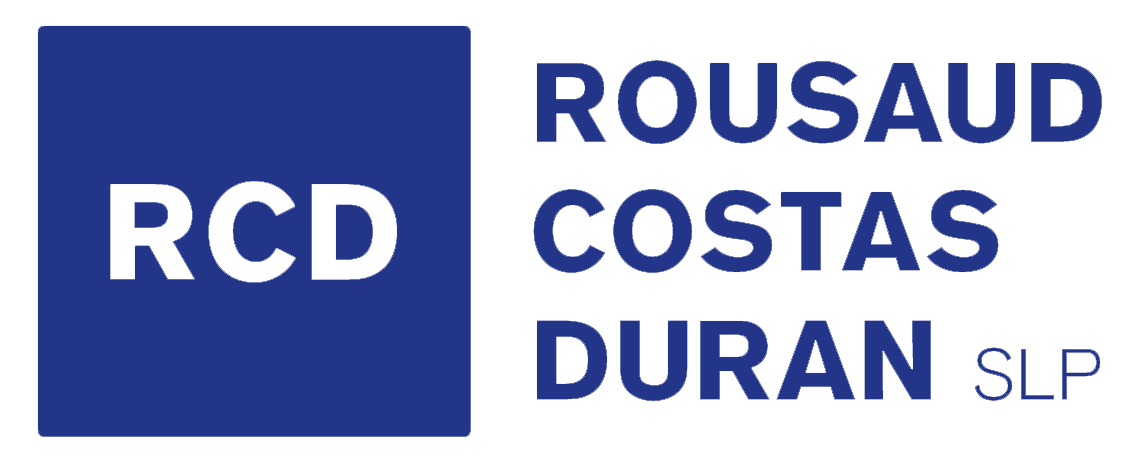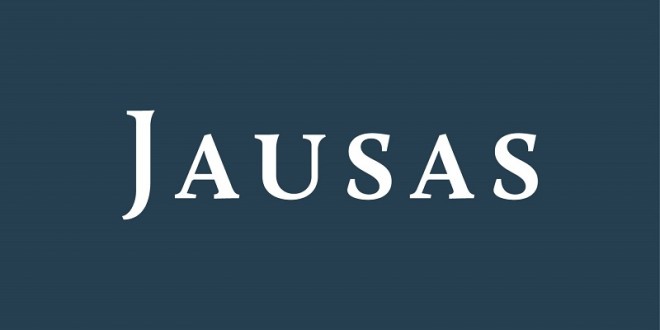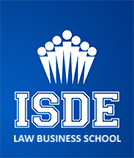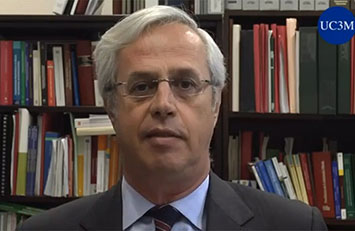Project Description
Información del curso
INICIO
Octubre
DURACIÓN
9 meses
IDIOMA
Inglés
FORMATO
Online
Introduction
This master has been designed to train highly qualified professionals in the regulatory sector, for innovative companies who are developing cutting edge products in the fields of medicine and food.
Continually evolving laws and regulations are driving the demand for professionals who are experts in regulatory matters, and who can help companies bring medical and food products to the market in the most effective way possible.
Our vision
The professional of the future is someone who is capable of developing a professional career in a globalized world. With the aim of preparing our students in the most thorough way, to effectively manage all regulatory activities, this unique Master’s program has been designed to provide a deep understanding of current regulations, and their practical application in the development and commercialization of medicines, biological products, medical devices and food in different territories.
Distinctive features of the Master:
Flexibility: The Students can choose whether to take the full Master’s degree covering worldwide activity, and hence obtain a global view of the regulatory sector, or focus their study on one of five blocks defined by geographical region, covering all the regulatory disciplines of that specific region.
What will you learn?
- Analysis and study of the norms and regulatory practices of the pharmaceutical and food sectors from a global perspective, addressing each subject from the perspective of the five major territories:
- Europe and CIS
- USA
- LATAM (Latin America)
- APAC (Asia-Pacific)
- Africa and the Middle East
- Analysis and study of the regulatory bodies in the pharmaceutical and food industry.
- Acquisition of a deep, global vision of the challenges which pharmaceutical and food regulation present in the different countries.
- Acquisition of the necessary competencies for the management of a Regulatory Department of a company.
- The online program provides flexibility and an interactive experience for students who are practicing professionals.
Who is it aimed at?
- PROFESSIONALS
- Compliance managers, in-house lawyers, experts in regulatory affairs.
- Directors of regulatory affairs departments.
- Officers and agents of relevant/enforcement authorities.
- Members of regulatory institutions, regulatory boards and committees.
- Experts in regulatory affairs and consultants.
- Independent lawyers.
- INDUSTRIES
- Food industry: producers, distributors and other commercial operators.
- Pharmaceutical and biotechnological industry: laboratories, research institutes.
- Chemical industry.
- Cosmetics companies.
- Medical technology and healthcare companies.
- AUTHORITIES
- Regulatory agencies.
- Health authorities.
- Public health service institutions.
- Chambers of commerce.
- Other professional bodies and institutions.
Objectives
Provide a global vision of the regulation and practices that are carried out in the main areas of the sectors with the largest focus in terms of health issues (pharmaceuticals and food).
Deepen subject knowledge from the point of view of regulation and its practical application in each territory.
Acquire the knowledge and skills necessary to solve business issues in relation to the relevant regulation.
Gain a competitive advantage through the knowledge acquired and the professional network of contacts that will be created throughout the program.
Why choose the Food and Healthcare Master Online?
- Global training in order to stand out in the regulatory sector of the pharmaceutical and food industries.
Rousaud Costas Duran y Jausas, collaborating firms with the program specialized in this field.
- Given the extensive regulations affecting a sector as regulated as this one, there will be an increasing need for specialized and qualified professionals in this area.
- Organized in differentiated blocks, comprised of different subjects depending on the specific geographical territory, facilitating student choice based on their needs.
An up to date and global vision of the sector in which you are active.
- Qualified training of your company’s staff granted by ISDE (a prestigious institution in legal Masters from a practical perspective) and leading experts.
- Access to an exclusive network of contacts with experts (regulatory agencies, industry and law firms).
Career Opportunities
Industry:
- Executives, managers and technicians
- Compliance Officers
- In-house legal counsel
In any of the above mentioned areas of activity, both in the pharmaceutical and food sectors:
- Regulatory areas and Intellectual Property
- Marketing and advertising
- Labels, leaflets, technical sheets, branding
- Prices
- Import and distribution
- Manufacturing
- Safety, quality and pharmacovigilance
- R & D
Public institutions, authorities:
- Technicians and inspectors of regulatory agencies
Consulting
- Experts and regulatory consultants in their respective areas of activity and territories
- Patent agents
Academic Program
The Master’s program integrates common transversal subjects of activity of the companies, and more specific subjects from each of the territories. In this case, we use Europe and CSI as an example, but the subjects can vary.
Pharmaceutical
Block I. Foundations
1. Introduction to the legislative framework of the pharmaceutical and health sector.
2. Distribution of competencies.
3. European law (or law of the corresponding territory) in the pharmaceutical sector.
Block II. Medicine
1. The concept of medication. Classes and distinctions between related figures.
2. Commercial authorization.
3. Mechanisms and outlines for rapid access to the market: conditional authorization, authorization under exceptional circumstances, adaptive pathways, PRIMEE.
4. Use of medications which are unauthorized or in special situations.
Block III. Innovation
1. Peculiarities of the pharmaceutical industryPeculiarities of the pharmaceutical industry
2. Patents, classes.
3. Generic and biosimilar
4. Data exclusivity.
5. Procedures and precautionary measures.
Block IV. Investigation and development
1. Preclinical studies.
2. Clinical trials.
3. Patient associations and relationships with patient associations.
Block V. Manufacturing and distribution
1. Manufacturing and labelling.
2. Distribution.
3. Serialization.
4. Foreign trade.
5. Internet.
Block VI. Access to medications
1. Prescription.
2. Dispensation.
3. Access to pharmaceutical markets in special situations.
4. Medications in hospitals. Risk-sharing agreements and other mechanisms..
5. Therapeutic positioning reports.
Block VII. Financing and prices
1. Public financing and pricing
2. Types of prices in Spanish legislation
3. System of reference prices and homogeneous groupings
4. Rationalization
Block VIII. Pharmacovigilance
1. Observational post-authorization studies
2. Pharmacovigilance and other control methods
Block IX. Advertising
1. Publicity rights.
2. Advertising of medicines.
- Directed at the public.
- Directed at health professionals.
3. Frequency of sectorial codes.
4. Advertising and new technologies.
Block X. The contracts of the Pharmaceutical Industry
1. Typical private contracts.
2. Practical aspects to be taken into account in distribution and licensing contracts (among others).
3. Public procurement.
Block XI. Competition law
1. Unfair competition.
2. Collusive agreements.
3. Abuse of dominant position.
4. Parallel imports.
Block XII. Compliance and data protection
1. Compliance and transparency in the pharmaceutical industry.
2. Deontological and criminal sphere.
3. Treatment of personal data.
4. Adaptation of the pharmaceutical industry to new Data Protection Regulation (For the EU).
Food
Block I. Foundations
1. International food regulation:
- International organizations related to food
- International food trade system
2. European food regulation:
- European institutions regulating food
- General Food Law
Block II. Public food law.
1. Competencies and organization
2. Guarantees
3. Responsibilities
Block III. Private food law.
1. Food law and contract law
2. International food sales
3. Standards and codes of conduct
Block IV. Food safety
1. The concept
2. Risk assessment
3. General requirements
4. Additives
5. Contaminants
6. Hygiene
7. Traceability
8. Authorizations
Block V. Commercial Communications
1. Labelling.
2. Food advertising.
Block VI. Food quality
1. The concept.
2. Place of origin.
Block VII. Animals in the food industry
1. Animal wellbeing.
2. Animal cloning.
Block VIII. Biotechnology and nanotechnology applied to food
1. Concepts, differences.
2. Benefits and risks of using these techniques.
3. Regulation.
Block IX. Food safety and its impact on the environment
1. Status of legislation.
2. Effects of the globalization of production.
3. Environmental security.
Block X. Control and responsibilities
1. Controls with a general scope.
2. Controls within the EU.
3. International controls.
4. Competencies.
Block XI. Responsibility in the food sector
1. Administrative responsibility.
2. Consumer protection
3. Criminal protection.
Structure and methodology
- Exclusive platform for Masters students:
- Documentation: the theoretical content will be uploaded together with articles and links of interest (whether compulsory or optional readings).
- Satisfaction surveys: students will take a satisfaction survey [at the end of the master).
- Knowledge evaluation test.
- Question and answer Forum: in which the management and resolution of questions raised by the students is facilitated. It will be a means to both channel questions, and allow communication between students and teachers, by posting the dialogue and answers on the forum.
- Debating forum: this has been designed to encourage discussion between the students, with the chance to file share.
- The Master will be structured in Online modules that will combine:
- An average of 10 hours of dedication per week.
- Theoretical content and support material: compulsory or optional readings.
- Practical cases.
- Individual works of synthesis.
- Continuous evaluation to ensure progressive learning.
- Face-to-face sessions over two weekends during the Master’s Degree at the ISDE headquarters
- An average of 10 hours of dedication per week.
Faculty
The faculty of the Master’s program is comprised of highly regarded professionals with active professional careers in a wide variety of fields:
<ul<
- University professors and lecturers, public and private, specialists in the subjects of the program.
- Legal professionals with expertise in Regulatory Affairs.
- Experts from regulatory agencies.
- Technicians from the pharmaceutical and food industry.
Centros colaboradores






